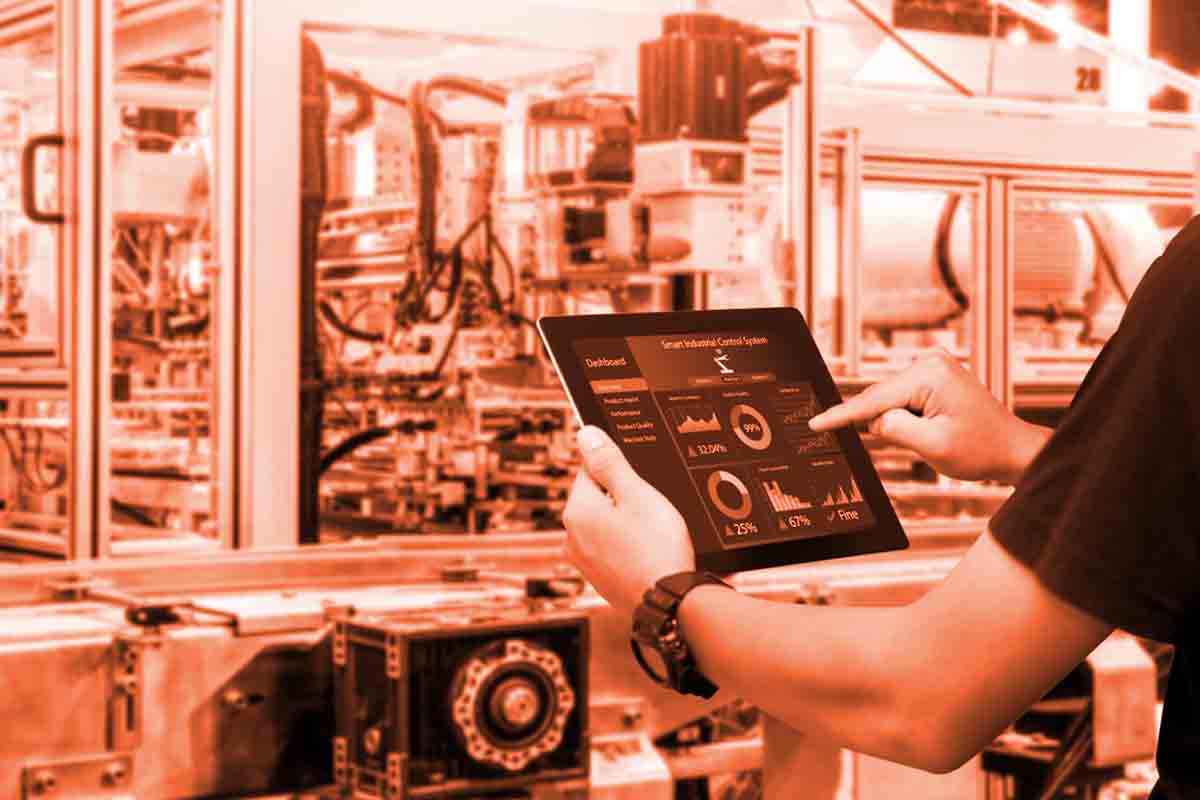Digital transformation is a process that can help organizations become more agile, efficient and resilient to change. One of the strategic points, especially in the current contingency, that can help companies to reduce costs and improve their performance is smart monitoring. Precisely because implementing digital transformation can be considered challenging and costly, a good way to start can be through smart monitoring, which allows for quantifiable expense reductions relatively quickly. Smart monitoring and metering, in short, are an extremely pragmatic way to approach digital transformation with a cost-related approach.
Intelligent monitoring is a set of technology and solutions that helps organizations identify and respond to changes in their environment. It can be used to monitor everything from network traffic to machine performance. With this in mind, and given the particular conditions in today’s market, it plays a key role especially in its declination of metering, that is, of the ability to monitor consumption in a timely and efficient manner.
What are the benefits of smart monitoring
As the name suggests, smart monitoring is a term that generically includes all plant and machinery monitoring activities within the enterprise.
Those familiar with industrial monitoring systems such as SCADA can imagine intelligent monitoring as the evolution of this, with some unique and important features such as the collection of data for analysis purposes and especially the ability to extend control to any aspect of production, not just the machinery proper.

In general, smart monitoring systems allow two-way communication between devices, machines, resources and the central system. This means that data can be collected and analyzed more quickly and efficiently. In addition, smart monitoring systems can help optimize processes and improve overall efficiency.
They also provide detailed information on energy consumption, which can help companies reduce related costs. This is where the concept of metering, which we will explore in more detail in the following sections. Finally, intelligent monitoring systems are one of the foundations of Industry 4.0, since they are among the most immediate and direct systems for collect business data for use both in real-time monitoring and as a basis for more advanced analysis, for example, predictive maintenance.
Constantly monitoring the operation of the company on the one hand and consumption on the other also means proactively supporting management control, particularly with regard to budgeting.
How to get started with smart monitoring in the enterprise
We mentioned how starting precisely with smart monitoring is a good way to begin the digital transition process. And while it is true that one of the long-term goals of Industry 4.0 is the creation of factories and companies that are increasingly autonomous in decision-making and data driven, it is also true that, as in all transformation processes, it is necessary to start with the basics. In the case of monitoring services, this base consists of the following from sensors. In fact, today, implementing an industrial IoT system that puts an entire plant or factory in a position to provide a continuous and reliable flow of data is incredibly simple compared to the past.
To get off to the right start with the digital transition, in short, an essential and necessary first step is to put the company in a position to collect data through sensors and store them through a sufficiently evolved management system (tending to be an ERP). Two arrangements that, combined with metering to monitor consumption, make it possible to start a process of digital management of the company without impacting processes and procedures, thus with very high adoption times and acceptance levels.
Smart Metering: intelligent monitoring in the service of consumption
The metering or rather the smart metering is in some ways a branch of smart monitoring that refers to the management and control of consumption. This is not a new topic in absolute terms: the benefits have repeatedly been the focus of studies, including by of the European Union over the past decade.
However, given the current moment and the rising cost of energy, it is an issue that is bound to come back again and again. The principle behind it is simple and shared with most monitoring activities: being able to access time series of data, and compare it with data from the rest of the enterprise, allows quickly identify and manage waste, leakage and costs.
Let’s clarify with a practical example, imagining a company that has multiple production plants: through smart metering it is possible to identify any anomalies in consumption and, by cross-referencing the data with the data from each plant’s periods of operation, Identify whether any of these present abnormal consumption. In this way, it is possible to go in depth by understanding whether there are leaks (in the case of water or fuel supplies) or line leaks in the case of electricity, or whether the inefficiencies are due to other causes.
A good smart metering system, in short, is not only an advanced consumption metering system, but can also become, together with smart monitoring, an effective tool for anticipating malfunctions and failures, solving hidden ones before they become blocking problems for business operations.
Why smart monitoring is a good first step in digital transformation
In conclusion, we can say that smart monitoring is the best possible first step toward digital transformation because it allows, with relatively little effort, to have a functional system to keep consumption and costs under control from the very early stages, and to start right away to collect data to be used in the more advanced stages of the digital strategy.
Smart monitoring is a key part of any digital transformation initiative. By collecting data and monitoring consumption, you can contain costs and better understand how the company leverages resources and uses technology.
Contact us to receive more information and book your free consultation.